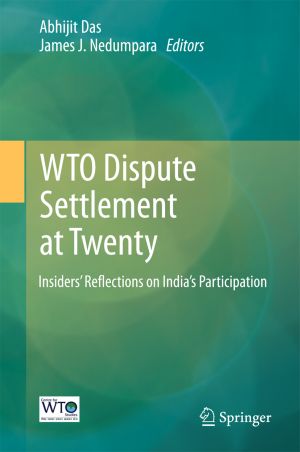
This book focuses on India's participation in the WTO dispute settlement system, at a time when India has emerged as one of the most successful and prominent users of WTO dispute settlement among the developing countries. It offers a unique collection of perspectives from insiders - legal practitioners, policymakers, industry representatives and academics - on India's participation in the system since its creation in 1995.
Presenting in-depth analyses of substantive issues, the book shares rare insights into the jurisprudential significance, political economy contexts and capacity-building challenges faced by India. It closely examines India's approach in effectively participating in the WTO's dispute settlement mechanism including the framing of litigation strategies, developing legal and stakeholder infrastructure, implementing dispute settlement decisions, and the impacts of the findings of the WTO panels / Appellate Body on domestic policymaking and India's long-term trade interests. In addition to discussing the key "classic" jurisprudential issues, the book also explores domestic regulatory and policy issues, complemented by selected case studies.